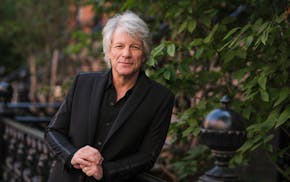Thousands of books are available on the craft of writing, and even more titles crowd the memoir shelf, but Beth Kephart's "Handling the Truth: On the Writing of Memoir" dips a toe in both pools to provide an essential primer on writing within one of the most popular genres on the market today.
Kephart herself "had been a closet writer nearly all [her] life" until she took her first writing class while in her 30s. Fifteen books (including five memoirs) later, Kephart is an award-winning author, a creative nonfiction writing teacher at the University of Pennsylvania, a small-business owner and an avid blogger who wrangles with the blank page every day.
At first glance her writing style may appear to be casual, but her advice for the memoir writer is deadly serious. "Careful, now," she says to her class, and to her reader, as they start down the path of writing about their lives. There are many cautions like this along the way, because, "Writing is not a task; it is no job. Writing is a privilege."
One of the qualities that make Kephart the perfect author for a book like this is that she considers herself not only a teacher, but a lifelong student. "I blame Natalie Kusz," she writes, citing Kusz's memoir "Road Song" as her earliest foray into memoir. She quotes heavily throughout the book from writers she continues to learn from, whether it is one of her own novice students or those she considers masters of the craft, such as Patricia Hampl or Sven Birkerts.
According to Kephart, it is just as important to consider what the writer may leave out as what she may include. "Hold those memoir horses," she writes. "You will be writing a life story that leaves (by necessity) the vast majority of your life story off the page." Other sage advice includes to tread the line between fiction and nonfiction carefully, to be patient, since "Memoirists work like gardeners in the spring," and above all, if you want to write memoir, read memoir.
For those who just love to read memoirs, Kephart's guide sharpens our critical eye for what is working, as well as what isn't. I defy anyone to finish this book without adding at least 10 new titles from the Appendix to your "to read" list.
It's easy to get overwhelmed by Kephart's wisdom, but as a longtime reviewer and occasional writer of memoir, there was one line that rang out loud and clear to me: "Ask yourself, Is this the best that I can do? Do nothing less when writing memoir."
Meganne Fabrega is a member of the National Book Critics Circle.

Review: Zendaya holds the key to tricky relationship drama 'Challengers'
New federal rule bars transgender school bathroom bans, but it likely isn't the final word

Kao Kalia Yang, Edel Rodriguez and others bring us gorgeous new picture books

